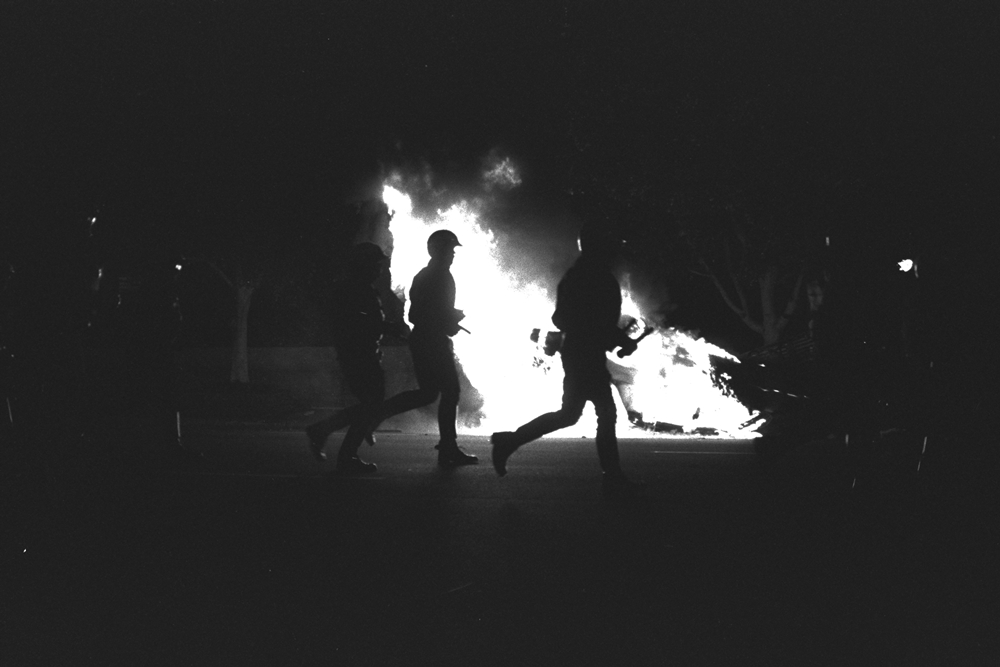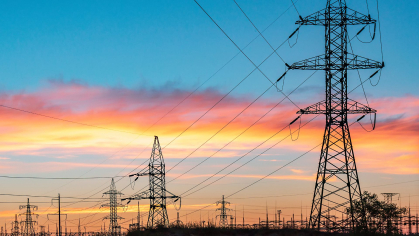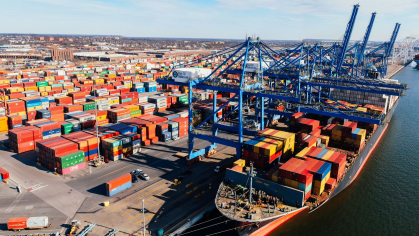Can America Devolve Into Civil Conflict? More Easily Than You Know, Says Political Scientist
In the wake of the Jan. 6 insurrection on the U.S. Capitol, Beth Rabinowitz observes that Americans are asking whether the United States could move toward the previously unthinkable: civil conflict.

“Still, the idea that the United States could be on the precipice of some kind of sectarian conflict seems outlandish for many people,” says the associate professor of political science at Rutgers University–Camden.
Is it really so preposterous? The answer, she believes, may surprise many Americans.
“I think it is fair to say that, in general, Americans are not familiar with how dangerous religious and ethnic conflicts develop and, therefore, have tended to believe that we are somehow different,” she says.
The expert in political mobilization of violence around identity – she has studied ethnic conflict, military coups, and electoral violence for a decade – had long been aware of the “corrosive power” political rhetoric can have on societies.
“Yet I, too, never thought I would be facing this corrosive power in my own country,” says Rabinowitz. “However, over time, I have seen that our longstanding institutions and unbiased media are no longer our safeguards.”
She recalls that she could not have imagined such a possibility in 2009, when Donald Trump was promoting the birther movement in the United States. She had just returned from a research trip to the Ivory Coast, a country that had been stable for more than 40 years before devolving into civil war. In her research, Rabinowitz discovered that the conflict was set in motion when a powerful opposition candidate, Alassane Ouattara, a northern Muslim, was disqualified from contesting the presidency on the false grounds that he was not truly Ivorian because his father was born in the neighboring country of Burkina Faso.

“This created a political division in the country between southern Christians and northern Muslims, which eventually spiraled so far out of control that the Ivory Coast sank into the chaos of civil war,” she explains.
Upon her return to the United States, Rabinowitz couldn’t help but notice the similarities to the challenge to Obama’s citizenship. She remembered thinking how reassuring it was that, unlike the Ivory Coast, the United States had trusted government institutions and a nonpartisan press, which protected Americans from such a fate.
Fast-forward to 2015, she recalls, when President Donald Trump began attacking the national press and questioning the validity of our electoral system. The professor remembers how her “heart sank.”
“I knew that America’s trusted institutions were being eroded,” she says.
On a personal note, the Rutgers–Camden scholar recalls, “the bitter irony” was that she had spent her career trying to understand how countries move away from personalized politics to develop effective democracies with impartial institutions and functioning bureaucracies.
“Now I was watching America reverse that process,” she says.
From her research on coup politics and ethnic conflict, Rabinowitz explains four signs that point to the likelihood that anti-state violence will continue. For starters, she says, in the absence of trusted institutions, elections become violent, with two characteristics commonly associated with post-electoral violence in other countries: First, the press is so partisan that it becomes next to impossible to parse out what is truthful and what is propaganda. Next, government favoritism and corruption are rampant, making it easy to sow distrust of the voting process.
“We have become such a country. What is taken to be fact diverges dramatically depending upon what media one consumes,” she says. “At the same time, belief in widespread government and electoral corruption has been tactically achieved by Trump and his enablers. Conditions are therefore ripe for post-electoral violence.”
The second sign, says the Rutgers–Camden researcher, is the ability for rebels to secure arms. Grievances are everywhere, she says, but violent conflict is not.
“Conflict emerges when aggrieved groups can arm themselves,” she says.
Third, says Rabinowitz, violence movements have to be mobilized.
“For civil conflict to erupt, existing divisions – religious, ethnic, racial, caste, or even geographic – have to be intensified and amplified,” she says. “This is almost always the result of ‘political entrepreneurs’ – politicians who stoke fear and hatred for their political gain. Donald Trump’s xenophobic speeches and hyper-nationalist promises are quintessential examples of this kind of instrumental politics.”
Lastly, says the associate professor, is that groups need coordination – an essential ingredient for anti-state rebellion. She notes that social media is a powerful tool for organizing disparate groups at very low cost.
“During the Arab Spring, we witnessed average citizens, with no existing organization, topple centralized regimes by using Facebook and Twitter as a call to action,” she says. “Even without access to these platforms, the dark web will continue to enable violent militants coordinate their activities.”
On the other hand, she affirms, there are three good reasons to think that if violence does persist, it will be limited. First, she explains, extremists are not enough. Mass violence is neither spontaneous, nor easily achieved.
“This is vividly illustrated by the Rwandan genocide, where Hutus unwilling to slaughter Tutsi’s were themselves slaughtered,” she says. “The violent pro-Trump-movement has a strong core of extremist devotees but is unlikely to increase its numbers dramatically. Over the next few months, Trump supporters will continue to be outraged by what they falsely believe to be the Democrat’s betrayal of America. However, the majority are unlikely to be radicalized enough to take up arms.”
Secondly, Rabinowitz explains, organization is absent. The violent ‘Stop-the-Steal’ movement incorporates a “dizzying array of anti-state, white supremacists groups,” which may be unified under Trump, she says, but they are ideologically divided and subject to political infighting.
“Absent a leader who can tactically organize them, it is unlikely they can sustain a rebellion,” she says.
Lastly, she explains, “intelligence is catching up.” She posits that white nationalism flourished under Trump, in part, because his administration impeded intelligence services from pursuing the growing threat.
“With the Biden administration, priorities will shift and efforts will be stepped up,” she says. “The military roll-out ahead of the inauguration is an indication of the state’s capacity to take concerted action against these groups.”
So, she asks, is America moving toward conflict?
“Hopefully not,” she replies. “However, the signs point to the increasing possibility that we could be.”


